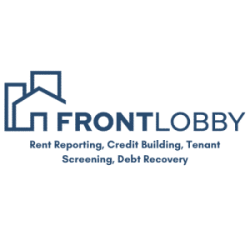As a housing provider, you’re always looking for ways to make things better for both you and your residents. A big step you can take is reporting rent payments to Credit Bureaus. When you report rent payments, your tenants have a chance to boost their credit scores just by paying their rent on time. This is good for them, but it’s also great for landlords and property managers. During the screening process you’ll know who’s likely to pay rent on time, you will have fewer late payments, and it even helps when you have to find new tenants.
But it’s not all about the money. Reporting rent payments can make your relationship with your tenants stronger. It’s about trust. When tenants know that paying their rent on time helps their credit score, they’re more likely to be on time. This makes things smoother for you and creates a positive environment for everyone.
A recent study concluded that, 80% of tenants want their rent payments to count toward their credit score. It’s a change that makes sense for tenants, but it’s also a smart move for you as a housing provider.
How Does Reporting Rent Payments Work?
What does it mean to report rent payments? Simply put, it’s when you, the housing provider, informs the Credit Bureaus every month whether your tenants have paid their rent on time. That payment information is then factored into a person’s credit report and can contribute to their overall credit score.
In Canada, Credit Bureaus such as Equifax play a crucial role in the financial ecosystem by maintaining credit reports and calculating credit scores for individuals. A credit score is often viewed as a reflection of a person’s creditworthiness, based on their history of borrowing and repaying debts, including loans, credit card payments, and now, potentially, rent payments.
Credit Reports: A credit report is a detailed record of an individual’s credit history, including the types of credit they have used, the length of time each account has been open, amounts owed, and whether bills have been paid on time. It may also include information about bankruptcies, collections, and other financial judgments.
Credit Scores: Based on the information in the credit report, a numerical score is calculated. In Canada, credit scores range from 300 to 900 points. The higher the score, the more financially trustworthy a person is considered to be. Lenders, including banks and credit card companies, use credit scores to decide whether to lend money and at what interest rate. A high credit score can lead to better loan terms, lower interest rates, and can even influence renting and employment opportunities.
By understanding the significance of credit scores and the role of credit bureaus like Equifax in Canada, housing providers can appreciate the value of rent reporting not just as a tool for financial management, but also as a service that supports their tenants’ financial health. This mutual benefit can strengthen the landlord-tenant relationship, leading to a more stable and positive rental experience for both parties.
Why It’s Good for both Housing Providers and Renters
Reporting rent payments to Credit Bureaus allows these payments to be included in a tenant’s credit report. Just like with any loan or credit card payment, on-time rent payments can positively impact a credit score, while late payments can have a negative effect. This inclusion benefits tenants by giving them an additional way to prove their financial reliability and build their credit score without necessarily having to go into debt.
A boost in credit score, which can average 68 points, opens up new doors for financial wellness. Tenants can gain access to better loan rates, higher credit limits, and more favourable terms for financial products. This empowerment leads to earlier achievement of financial milestones, such as homeownership or investing.
For landlords, reporting rent payments adds another layer of incentive for tenants to pay rent on time. It transforms rent into more than just a monthly bill—it becomes an opportunity for tenants to invest in their financial future. This aligns the interests of tenants and landlords: tenants are motivated to pay on time to boost or maintain their credit scores, while landlords benefit from timely payments and a more financially responsible tenant base.
Rent reporting can also make a property more attractive to renters. People looking to rent might choose a place with rent reporting because it gives them a chance to boost their credit score just by paying rent. This means landlords can attract good tenants who care about paying on time. Plus, when tenants know their rent payments are being tracked, they’re more likely to pay on time each month. This means less hassle for housing providers because they don’t have to chase after late payments.
On top of all this, helping tenants build their credit can create a better relationship between them and the landlord. So, it’s not just about making things smoother financially, but it also makes for a happier place to live.
How to Start Reporting Rent Payments
In Canada, the leading provider of rent reporting is FrontLobby, the platform is design for housing providers of all sizes and does not require minimum number of units. Getting started is an easy process that makes rent payments work in everyone’s favour. By following a few simple steps, you can help ensure rent is paid on time and give your tenants a chance to boost their credit scores.
1. Sign Up for an Account:
Visit FrontLobby and sign up for an account. Savvy Investor readers receive a special gift with their membership.
2. Verify Your Identity:
To ensure security and compliance, you will need to verify your identity. Follow the instructions provided, which may include submitting identification documents.
3. Add Your Properties:
Once your account is set up, you can start adding your rental properties. Provide details about each property, including address and the number of units.
4. Set Up Rent Details:
Enter the rent amount for each tenant and the payment due dates. This sets up the reporting framework so that when payments are made, they can be accurately reported to the credit bureaus.
5. Report Rent Payments:
Each month, report your tenants’ rent payments through the FrontLobby platform. You can mark payments as paid on time, late, or missed.
The Bigger Picture: Housing Affordability and Financial Wellness
The impact of rent reporting extends beyond individual landlords and tenants, touching on the broader issue of housing affordability. As housing providers find themselves in a stronger financial position, thanks to reduced delinquencies, they’re better equipped to offer competitive, affordable housing rates. This creates a positive feedback loop: affordable housing contributes to lower delinquencies, reinforcing the financial health of the rental market.
Moreover, tenants with improved credit scores find themselves in a stronger financial position. With access to better financial products and the ability to secure loans more easily, they can achieve financial wellness sooner. This could mean saving for a down payment on a home, investing in education, or starting a business—opportunities that were once out of reach due to a lack of credit history or a low credit score.
Reporting rent payments is a simple change that can make a big difference. It’s good for your business, makes life easier, and helps your tenants too.




